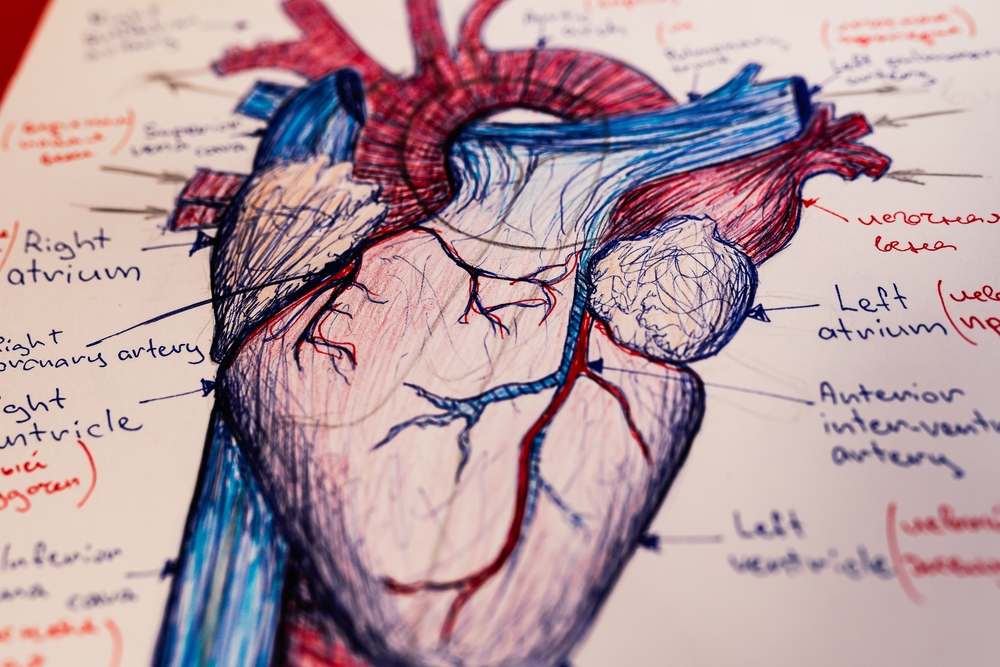


Cocaine's psychological effects are widely known, but its impact on the heart is often dangerously underestimated. This potent stimulant places immense strain on the cardiovascular system, even in young adults with no prior history of heart disease. Cocaine use can trigger heart attacks, aortic dissection, and fatal arrhythmias.
Let’s explore how cocaine harms the heart, the science behind its toxic effects, and why cardiac screening is essential in managing substance use disorders.
Cocaine is a stimulant drug. It’s derived from the coca plant and is known for producing intense feelings of energy, alertness, and euphoria.
People use it as a recreational drug - and it acts by blocking the reuptake of norepinephrine, dopamine, and serotonin. This leads to prolonged stimulation of the sympathetic nervous system. This “fight or flight” state results in vasoconstriction, leading to high blood pressure and reduced oxygen delivery to vital organs, especially the heart.
Excessive stimulation also increases heart rate and myocardial oxygen demand, further stressing the cardiac system. This results in a perfect storm for cardiovascular emergencies as stated below:
When blood vessels constrict, the heart must work harder to pump blood through narrowed arteries. This increases blood pressure (hypertension), a known risk factor for heart failure and coronary artery disease. Unlike gradual-onset hypertension, cocaine-induced spikes are abrupt and extreme. This sudden increase in pressure can rupture blood vessels, including the aorta, causing aortic dissection, a life-threatening emergency where the inner layer of the aorta tears.

A 48-year-old man with recent cocaine use was presented with chest pain and back pain. Further tests revealed a Type-A aortic dissection. Despite emergency surgery, he succumbed to these complications. Diagnostic imaging confirmed an acute aortic dissection. Toxicology results were positive for recent cocaine use. Notably, he had no conventional cardiovascular risk factors.
Cocaine can cause myocardial infarction (MI), or heart attack, by inducing coronary artery vasospasm. Unlike typical MIs caused by plaque buildup, cocaine-related MIs often occur in arteries that appear otherwise normal. The intense vasospasm restricts blood flow, depriving the heart tissue of oxygen, resulting in damage or death of cardiac muscle cells.
A study summarized by the American College of Cardiology found that 25% of patients under age 30 presenting with acute coronary syndrome admitted to recent cocaine use. Alarmingly, many had no traditional cardiovascular risk factors like diabetes, smoking, or high cholesterol.
Chronic cocaine use contributes to the buildup of plaque in the arteries (accelerated atherosclerosis). This narrows the coronary vessels, increasing the risk of coronary artery disease and heart failure over time. Additionally, cocaine-induced oxidative stress damages the endothelium (the inner lining of blood vessels), fostering inflammation and plaque formation.

Cardiomyopathy is a disease of the heart muscle that reduces its ability to pump blood effectively. Cocaine can cause both acute and chronic cardiomyopathy. Repeated use weakens the heart muscle, lowering the ejection fraction (the percentage of blood the heart pumps with each beat). This leads to symptoms such as shortness of breath, fatigue, and fluid retention.
A young adult male presented with symptoms of heart failure, including extreme fatigue and shortness of breath. Cardiac imaging revealed a severely reduced ejection fraction of 25%, consistent with dilated cardiomyopathy. He had no history of hypertension, diabetes, or coronary artery disease. Further evaluation confirmed recent cocaine use. With no other identifiable cause, his condition was attributed to cocaine-induced cardiomyopathy.
Cocaine disrupts the heart’s electrical system, increasing the risk of arrhythmias (abnormal heart rhythms). These can range from palpitations to life-threatening ventricular fibrillation, where the heart quivers instead of pumping. In some cases, this leads to sudden cardiac arrest, which is fatal if not treated immediately.
Electrolyte imbalances and increased myocardial oxygen demand from stimulant use further exacerbate these risks. Even minor lapses in rhythm can be deadly in the presence of underlying congenital heart disease or structural heart changes.
When cocaine and alcohol are used together, the liver metabolizes both substances simultaneously. During this process, instead of breaking each down separately, the body forms cocaethylene, a unique and toxic metabolite that remains in the bloodstream much longer than cocaine. While cocaine’s effects may wear off within an hour or two, cocaethylene can persist for several hours, exerting prolonged and intensified pressure on the cardiovascular system.

Cocaethylene is more cardiotoxic than cocaine. That means it damages the heart muscle and blood vessels more aggressively. Several studies have shown that cocaethylene toxicity increases the risk of:
It also lowers the threshold for fatal arrhythmias, especially ventricular fibrillation, a condition where the heart's electrical activity becomes disorganized and ineffective, leading to cardiac arrest if not immediately reversed.
The effects of cocaine can be silent until a serious event occurs. Therefore, people with substance use disorders, especially those who combine cocaine and alcohol, should undergo routine cardiac evaluation as part of their recovery process.
Recommended cardiac screenings include:
Early screening, even in those who are asymptomatic, can identify heart conditions that may be reversible with early intervention and sustained abstinence. A proactive approach, especially for those with a history of stimulant use, can make the difference between recovery and a silent tragedy.
If you need help getting off of cocaine, we can help. Our team has extensive experience in cocaine use treatment and can help you regain control of your life.


